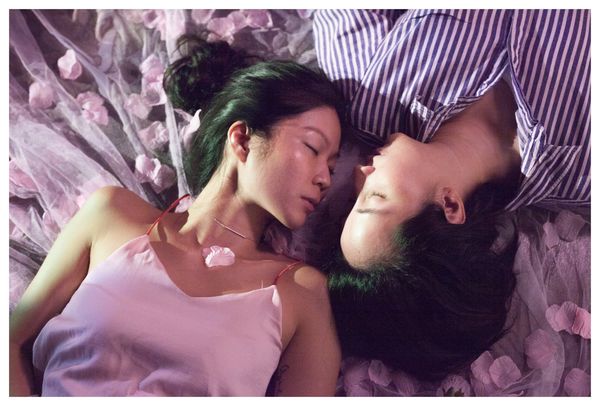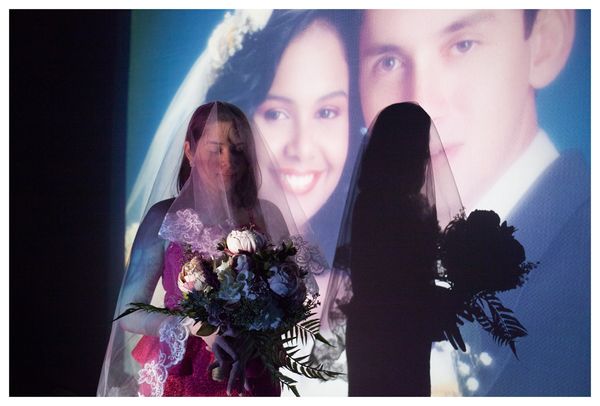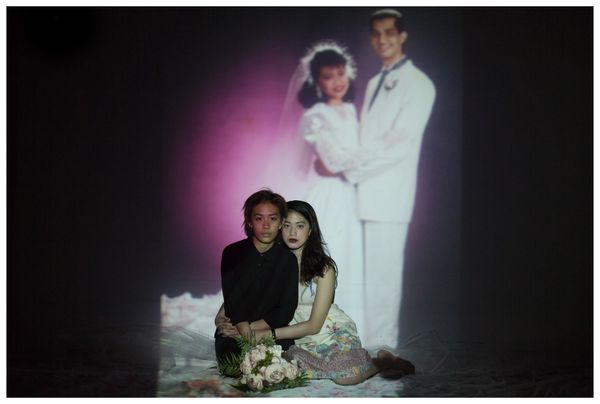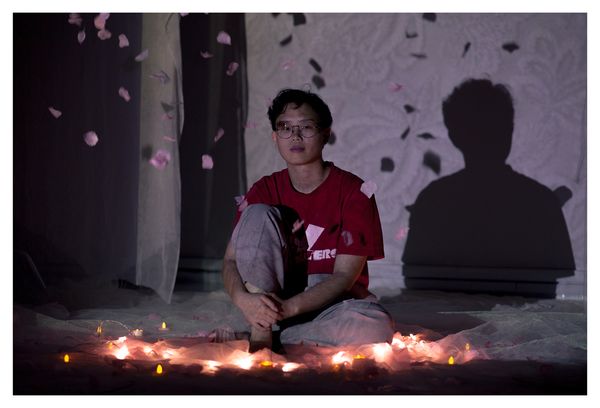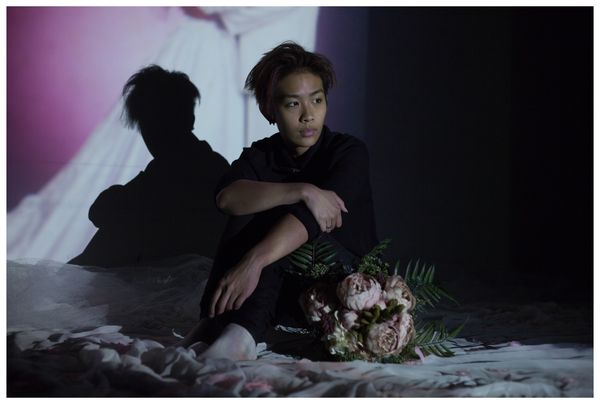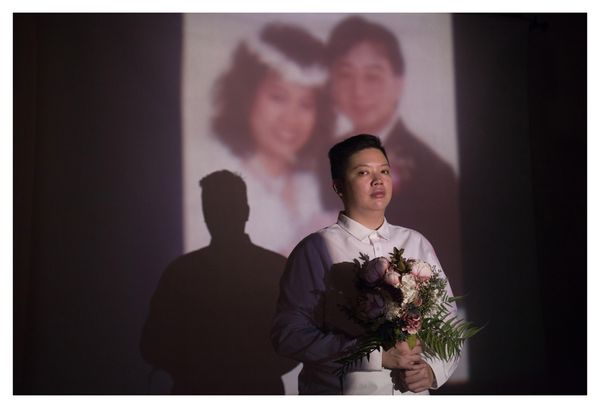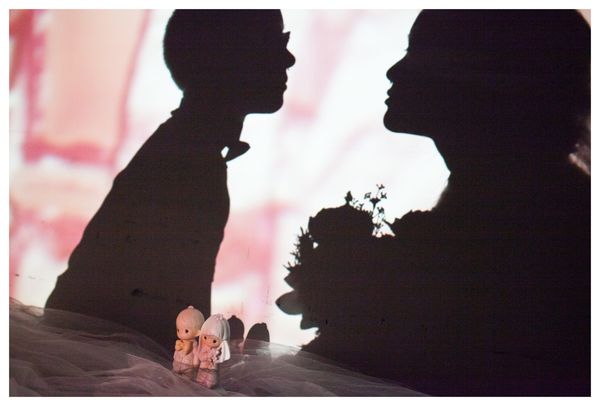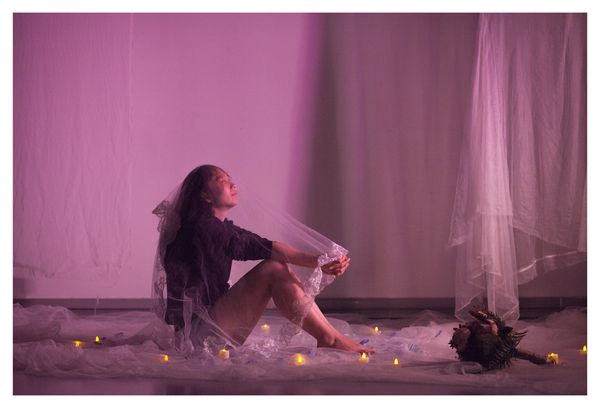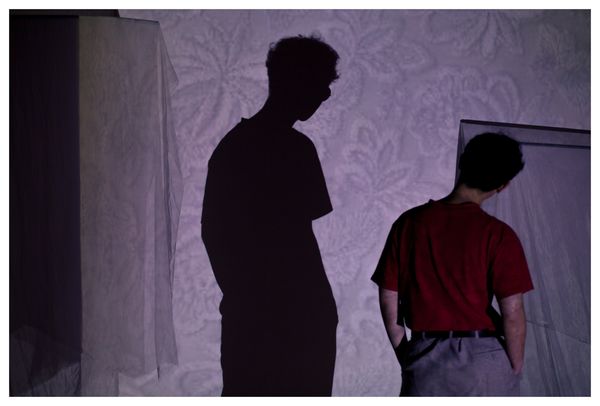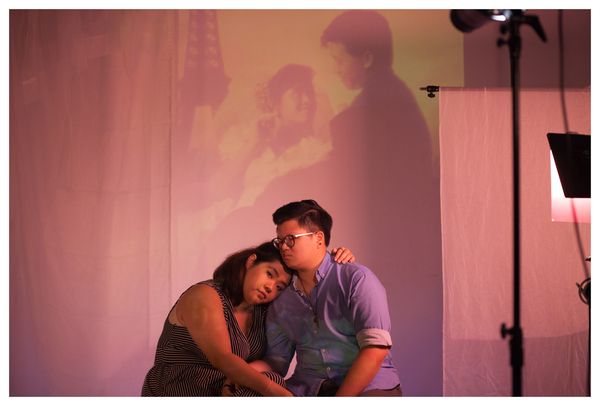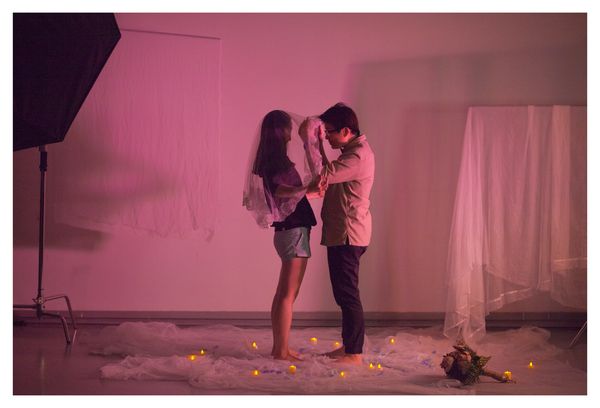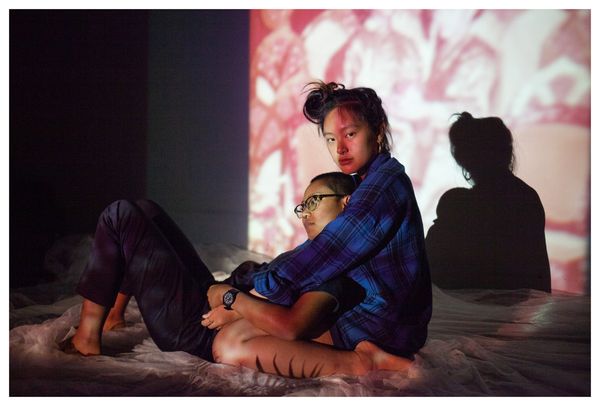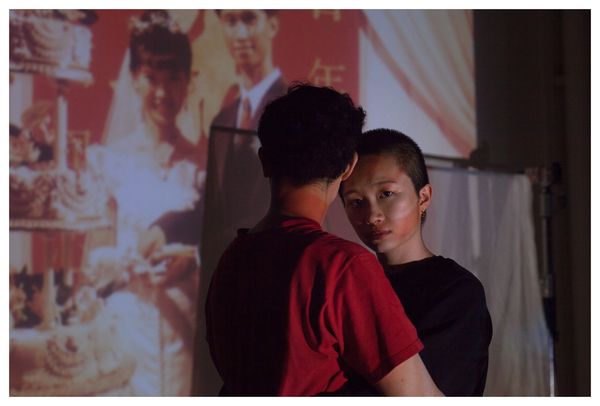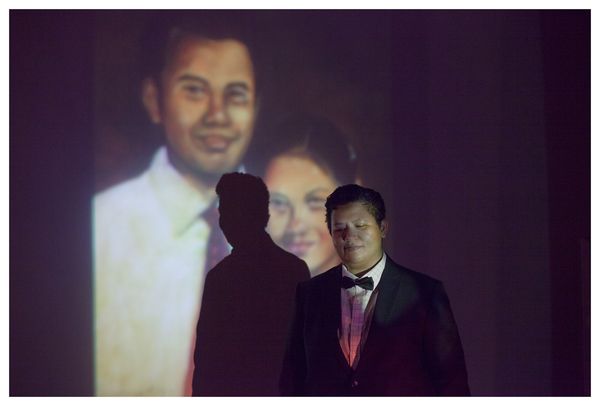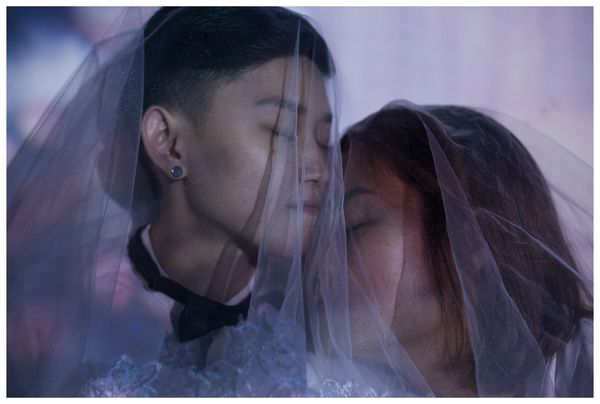How They Love
-
Dates2018 - 2020
-
Author
- Location Singapore, Singapore
How They Love explores the complexities of performing queer feminine identity in Singapore.
A photography studio. Contemporary love songs play softly in the background. The set is lit by LED panels tinted orange and pink. The floor is covered in white fabric and pink petals. Projected on to the backdrop is an 80s wedding portrait of a man and woman. Other photography equipment – C-stands, light stands, apple boxes, etc. – is placed around the set. In the foreground, two people sit cross-legged on the floor, holding hands, looking at each other. Both have bow ties on. Tears well up, and they embrace. A prolonged pause, then the click of a camera shutter.
How They Love explores the complexities of performing queer feminine identity in Singapore.
Through practice-led ethnography which employs photography and performance as main modes of research, engagement, and representation, the series examines the ways in which romantic partners express desire, as well as the manifestations of their individual identity formation project in the contemporary queer experience.
Central to the research is the notion of performativity, both relating to the tension with the camera as well as the everyday self-actualisation process. Brought into a studio and given an array of wedding props and costumes to choose from, the participants interact with matrimonial tropes and constructed gender roles, resulting in images which align with their vision of self-representation. Projected onto the backdrop are their parents’ wedding portraits, a visual reminder of the heteronormative histories that have shaped many LGBTQ people’s lives, and a juxtaposition to the possibilities they are in the midst of creating. Through the use of the set, as well as the use of dramaturgy in the direction of their portraits, participants confront the way they perform their gendered identities in the everyday.
In creating new imagery of queerness that echoes Jose Esteban Muñoz' idea of queer futurity, the series is an attempt to visibilise and validate narratives that have long been relegated to the margins. The process of engagement is in itself a form of world-making and resistance-forming, blurring the lines between performance and the everyday. The series situates itself not merely as a conceptual exercise, but in, as Judith Butler write, "a desire to live, to make life possible, and to rethink the possible as such."
Homosexual relations remain illegal in Singapore due to a colonial-era penal code, 377(a), which dictates that a man cannot have sex with another man. Couples who identify as non-heterosexual do not possess any legal or administrative rights, affecting marriage, their ability to obtain public housing, and hospital visitations, among other issues. Women are not mentioned in the penal code.
Coming up against existing state and social oppression, as well as a slowly evolving supportive discourse, it appears that queer identity is at a turning point in history. It has arguably never been more accepted to be queer, and yet the tide has not yet turned: the state continues to monitor and marginalise this identity to various degrees, giving rise to a community that has formed, and continues to form, its identity through self-determination.
This series was first initiated through a residency at the Exactly Foundation in 2018, before turning into a thesis project as part of the M.A. in Visual and Media Anthropology at the Freie Universität Berlin.
